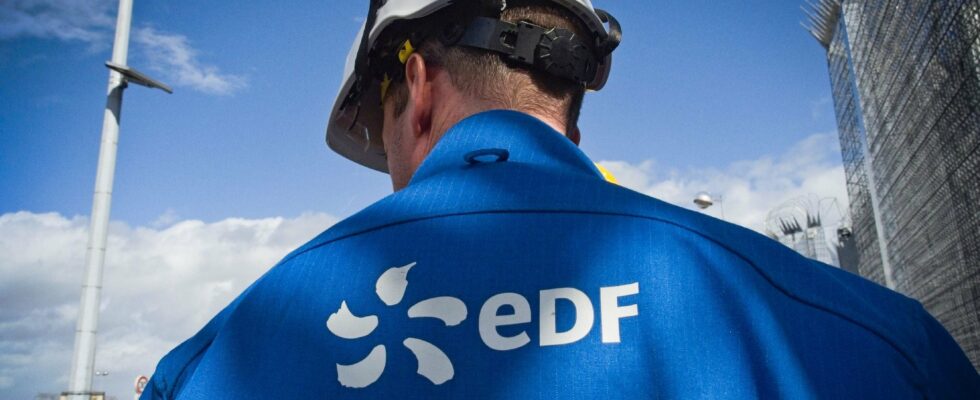From the secure aisles of the Nogent-sur-Seine power plant, in Aube, Caroline Chavanas, EDF’s executive director of human resources, highlights the challenge that lies ahead for the group’s future in France. “What awaits us is on an unprecedented scale: we will have to continue to operate our power plants, but also extend their lifespan, and build new nuclear electricity production centers.”
The director is present this May 23 with some journalists to send good news: this year, the group plans to recruit 10,000 employees in France for all of its activities, of which 4,500 will join the company’s nuclear sector. . This massive recruitment program should enable it to fulfill its objectives: maintain the 57 nuclear reactors in the French fleet and build six new EPR2 type reactors planned as part of the relaunch of the atom.
The step is high. Last year a study, carried out by the Group of French Nuclear Energy Industrialists (Gifen), anticipated that 100,000 new recruitments would be necessary within ten years to meet the needs of the relaunch of nuclear power. Engineers, technicians, boilermakers, faucets, welders… The profiles are as numerous and varied as there are professions in a power plant.
“There will be significant growth objectives in certain sectors such as work supervisors, mechanical engineers, or even project managers, to support a workload which will be 25% higher than what we know today “Today it is significant but it is not unattainable”, assures Christophe Neugnot, the spokesperson for Gifen.
Offer a career early
Efforts have already been made to fill short-term gaps. This is particularly the case among welders, a key profession for the construction of nuclear works, and which has lacked workers in recent years. In 2021, four large industrial groups (EDF, Orano, Naval Group and CMN) joined forces to create the Haute Ecole de training welding (Héfaïs) in Cherbourg, and respond to immediate demand from the sector. “In this sector, the necessary has been done, Framatome has also launched its welding school, we estimate that it will be able to train more than 200 welders per year,” underlines Hélène Badia, president of the University of Nuclear Professions (UMN), an organization created in 2021 to meet the training and recruitment needs of the sector.
For the rest, the challenge now is to convince young people to join the world of nuclear power. For this EDF is increasing its communication aimed at young people. Visiting the Nogent-sur-Marne power plant, you can come across an influencer with hundreds of subscribers on TikTok. Just like recently the YouTuber Tibo InShape, who made a video promoting the different professions of a power plant on the Tricastin site, in Drôme.
The strategy is also based on EDF’s ability to offer a career within the group very early on. “A large proportion of the people we are going to recruit come from work-study programs or internships, they already have a first level of skills, know the company and are ready to practice their profession,” judges Caroline Chavanas. Of the new arrivals to the group in 2024, almost half are work-study students and interns. A way to keep these profiles familiar with the company’s practices and to build a pool which will be crucial in the years to come to succeed in accelerating the construction of future power plants. “It is this accumulation of skills which means that we will be much better,” assures the director of human resources.
Feminize the sector
In this strategy, a significant part is also devoted to the feminization of the sector. “From a pragmatic point of view, given the recruitment volumes we are talking about, we can only achieve this by significantly increasing the feminization of these professions,” notes Eric Gadet, director of the National Institute of Nuclear Sciences and Techniques, one of the main training schools in the sector. At the moment, women represent just under 30% of employees in the sector. “There has been great progress in recent years, but we remain below the industry average and today, we are still struggling to move towards 30-40% women in these professions,” notes Hélène Badia, emphasizing the importance for young women to join scientific and technical sectors upstream.
To convince young women that the path to nuclear power is open to them, the group likes to highlight the profiles of exemplary women. Of the 18 plant directors in France, four are now women. In Nogent-sur-Seine, Estelle Obert welcomes this: “We have increased to 30% women in our recruitment and certain professions which were still quite male-dominated, such as reactor operation (in the control room), are becoming more feminine” . This afternoon, the core of reactor number 1 of the power plant was partly controlled by a woman, Louäne Fouche, a 22-year-old work-study student, who could see herself one day at the head of a power plant.
.
